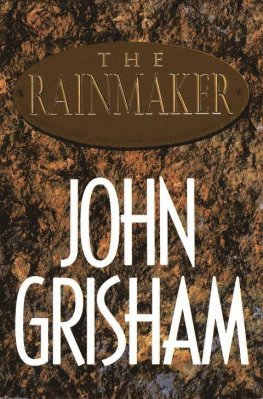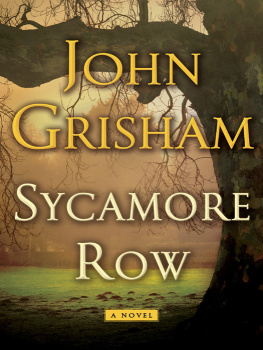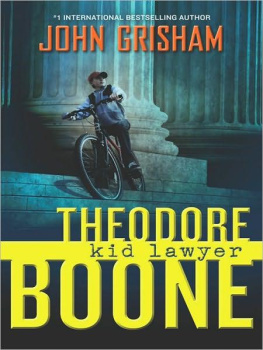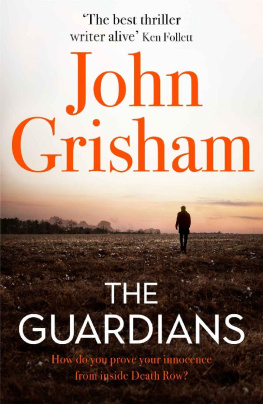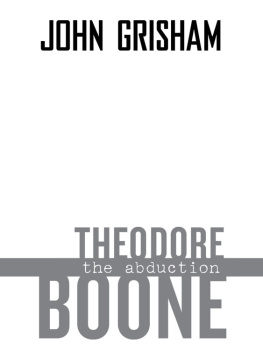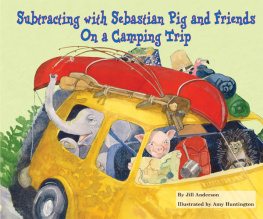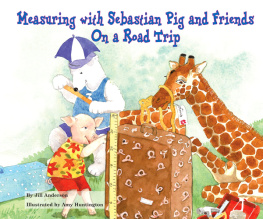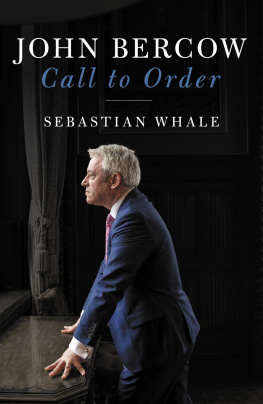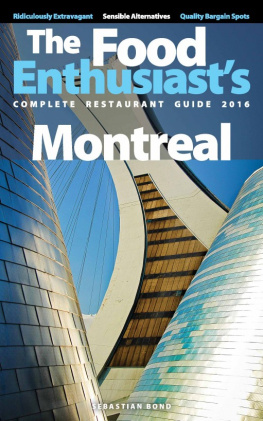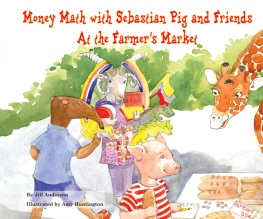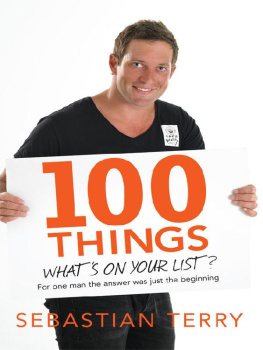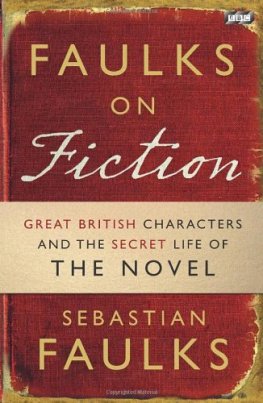
2016
Tee Ray and his son lived on the back porch of an old shotgun house, one in a long row of identical houses packed along Irvine Street in a section of town known, both affectionately and derisively, as Little Angola. The house was owned by a bruiser called Thick, or Mr. Thick as he preferred, and he really didnt want anyone living on his back porch, regardless of the paltry rent they paid. The rooms inside were rented too, for a few bucks here and there, to people so poor that Tee Ray and Jameel were at times thankful they lived outside. But winter was coming, and Tee Ray knew they had to move on. They had scratched out an existence on Mr. Thicks sagging boards for two months, each day vowing to find another place.
But Tee Ray wasnt working. He had been laid off from his job delivering seafood to high-end restaurants out in the suburbs. Another job had fallen through. Jobs were scarce in Little Angola. He was thirty-three, and according to the newspaper half the black men his age or younger were unemployed. Eventually, most drifted into drug trafficking. From there, they went either to prison or to the cemetery. Tee Ray was determined to avoid both. His life revolved around Jameel, who had just turned fourteen and was headed for the streets. Headed? He was already on the streets, and if they didnt find a more stable place to live, the boy wouldnt have a chance. His mother left him years ago; not that it mattered. She and Tee Ray had not bothered with anything close to marriage, and when the kid was four she disappeared.
Through a friend, Tee Ray met a crack runner called Tox. Real names were never used, only nicknames and aliases, and they sometimes changed weekly. Tox worked for an unnamed boss who took orders from someone else up the chain. Tee Ray didnt know who the big boys were, nor did he care. The urban legend was that the crack that poured into Little Angola came from a Mexican cartel. The cocaine that flooded the white neighborhoods came from South America and was controlled by a local gangster, one whod received the death penalty a year earlier.
Such matters were of little interest to Tee Ray. He was focused on survival. Hed been told that Tox was looking for an older guy, someone perhaps more dependable. The kids were used as the cashiers, the actual street dealers who handed over the goods as the customers handed over the cash. As the most vulnerable, they were the most likely to get busted. Their bosses worked in the shadows, always watching and ready to vanish. After a couple of years as a cashier, a kid savvy enough to avoid the cops would get himself promoted. Most, though, didnt make it that far. Most were arrested, refused to talk, were processed through the criminal justice system, and got sent away.
Regardless of how broke he might be, Tee Ray had no plans to sell crack on the streets. He was, though, willing to move it around town, carry a gun, and take a few chances, and he was determined to survive. He would do it part-time, save some cash while looking for a real job, then move with Jameel out of Little Angola. But then everybody wanted out. Everybody wanted a job. Everybody wanted a better life away from the streets and drugs and violence and hopelessness. Tee Ray had a first cousin who worked in a tire factory, made $20 an hour, more with overtime, and had a wife who taught school. They lived in a modest tract house with flowers along the sidewalk and an aboveground pool in the back. Thats all Tee Ray wanted; nothing fancy, nothing rich. Just a dignified life built on honest labor.
Instead he was now muling crack around Little Angola on foot. He met Tox after dark in an abandoned warehouse at the end of a war-torn street that even the cops avoided. Other tough guys were moving in and out of small rooms, everyone glancing around with suspicion and no one saying much. A stray word or the wrong move might provoke gunfire. Tee Ray was acting tough because it was required, but inside his stomach was flipping. This was not where he wanted to be.
Tox said, Nice coat. Whered you get it?
Goodwill. Paid ten bucks for it. At least two sizes too big. He took it off and dropped it on the floor.
Itll work. Here. From a nail on a wall Tox lifted a bulky vest, customized with extra linings and pockets filled with small bags of rock. It felt as though it weighed twenty pounds. A hundred bags, Tox said.
Where am I going? Tee Ray asked as he slowly worked the overcoat over the vest.
Not sure right now. The Bulls were spotted last night, so there might be trouble. He handed Tee Ray a cheap, prepaid cell phone. Keep that in your hand. You got a piece?
Tee Ray reached into the right rear pocket of his jeans and produced a snub-nosed.38 with no serial number. Tox looked at it, shrugged as if it wasnt much of a weapon, and said, Itll do. Just dont use it unless you have to.
Tee Ray almost said, Ive never used it, but let it pass. Hed bought the gun from a street dealer two years earlier for protection. He couldnt imagine actually shooting at someone. The Bulls were rival drug dealers known for their savagery, and Tee Ray felt weak in the knees. As if undercover cops werent enough to worry about, drug dealers also had to cope with rivals moving into their territory.
A year earlier, a now-famous drug deal in Little Angola had gone bad when two gangs and a bunch of narcs squared off in a raging gun battle in which, at times, it appeared as though everyone was shooting at everyone else. Three thugs were killed; one cop died; one was severely injured. For a month the editorials raged and the politicians railed, but after a year nothing had changed on the streets. Eight defendants were still awaiting trial. Crack was in high demand. Someone had to deliver it.
Tee Ray was certain he could avoid serious trouble, and he was determined not to use his gun. If he got caught and arrested, he would face his punishment like a man. But he would not, under any circumstances, kill anyone. He knew too many men who would die in prison. Trafficking could get you hard time, but using a gun could get you locked up forever.
He left the warehouse and drifted through the shadows and alleys of Little Angola. A chill was blowing in from the river; it was the coolest night of the season. He thought of Jameel and hoped the kid was where he was supposed to be-on the porch in a makeshift tent, reading a history lesson by the dim light of a small battery-powered lantern. If he wasnt there, he would be at the YMCA playing basketball. He was already taller than Tee Ray, thin and limber and able to jump over the backboard. Scouts hung around the Y, and a couple had chatted with the kid. If he kept growing, he might escape the streets with an all-expenses-paid ticket to college. Tee Ray dreamed of this, but he wasnt sure Jameel had visions of the big time. He wasnt in love with the sport, wasnt that motivated. Tee Ray feared his son might be one of those talented athletes who didnt have the drive. Another head case too lazy to work.
Tee Rays phone vibrated. Tox told him to take a position near the river, at a place called Pier 40. Ten minutes later, Tee Ray eased into a public restroom, an empty, grimy place that reeked of too many strong odors to identify. A kid, wearing a Lakers cap, who looked to be about the same age as Jameel, walked in and said, Tox said you got twenty.
Tee Ray quickly handed over twenty bags. The kid was gone in seconds. Tee Ray waited in the only stall with a lock for five long minutes, then opened the door. If they had been seen, the kid was already handcuffed and the cops were waiting. But all was quiet. He hustled away, found an alley, and called Tox.
Next page

